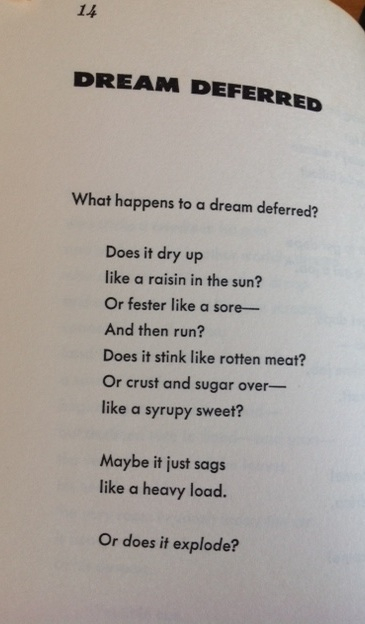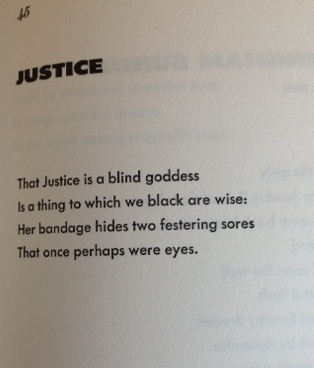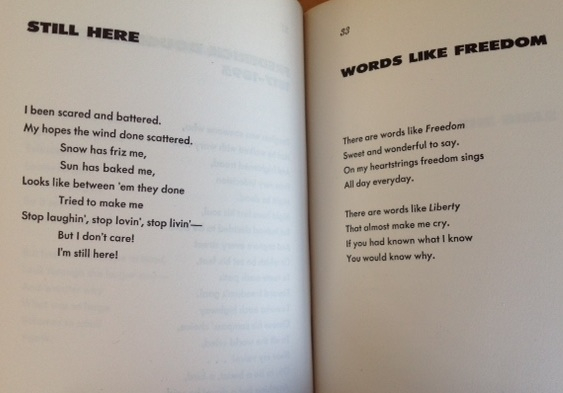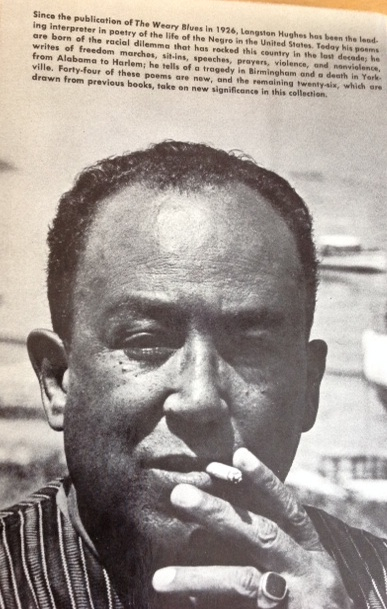When I preached on the Sunday a week after Mike Brown was murdered in Ferguson, Missouri, like many ministers that week, I changed the topic I was going to preach on — like many ministers are choosing to do this Sunday, in the wake of the grand jury decision not to go forward with a trial for Officer Darren Wilson.
When I preached that Sunday last August, given how things were going down in Ferguson, with the police responding like they were para-military, given that opportunists were using righteous protests to loot, given that people long held under the thumb of racial oppression were responding in rage, I started with this poem
 I am not scheduled to preach tomorrow, so there’s no changing sermons.
I am not scheduled to preach tomorrow, so there’s no changing sermons.
If I were to preach, I am not sure I can come up with something better than the words of Langston Hughes, and how what he wrote forty, fifty, sixty years ago is nearly as fresh today:
that almost make me cry.
If you had known what I know
You would know why.”
When it comes to his poetry, I have tended to be more of a fan of his shorter pieces — the longer ones don’t hold up as well. Here’s one that, given that it is still applicable today, is heart-breaking and out-raging:
 These poems come from the collection called, The Panther and the Lash: Poems of Our Times, published the year I was born. Yet, many of the poems were originally published much earlier. Like the one above, “Justice” was first published in 1932.
These poems come from the collection called, The Panther and the Lash: Poems of Our Times, published the year I was born. Yet, many of the poems were originally published much earlier. Like the one above, “Justice” was first published in 1932.
Just think about that. Over eighty years ago.
As the UU minister, Myke Johnson, wrote in her blog:
We who believe in freedom like to tell the story that racism is easing, that, yes, we still have work to do, but so much progress has been made in the last fifty years. But each year I learn something new that astounds me concerning the depth and persistence of this plague in the very structures of our society. Schools today in America are more segregated than they were fifty years ago. Voting rights are being diminished each year, with methods that are targeted to people of color. More black men are in prison than ever before–the United States now imprisons a larger percentage of its black population than South Africa did at the height of Apartheid.
I am thankful, Langston, for your poetic voice.
I am achingly sorry, Langston, that we still need it.


Well done, Karen, these selections, these words of grief, bespeaking worlds…
Namaste, Andrew.